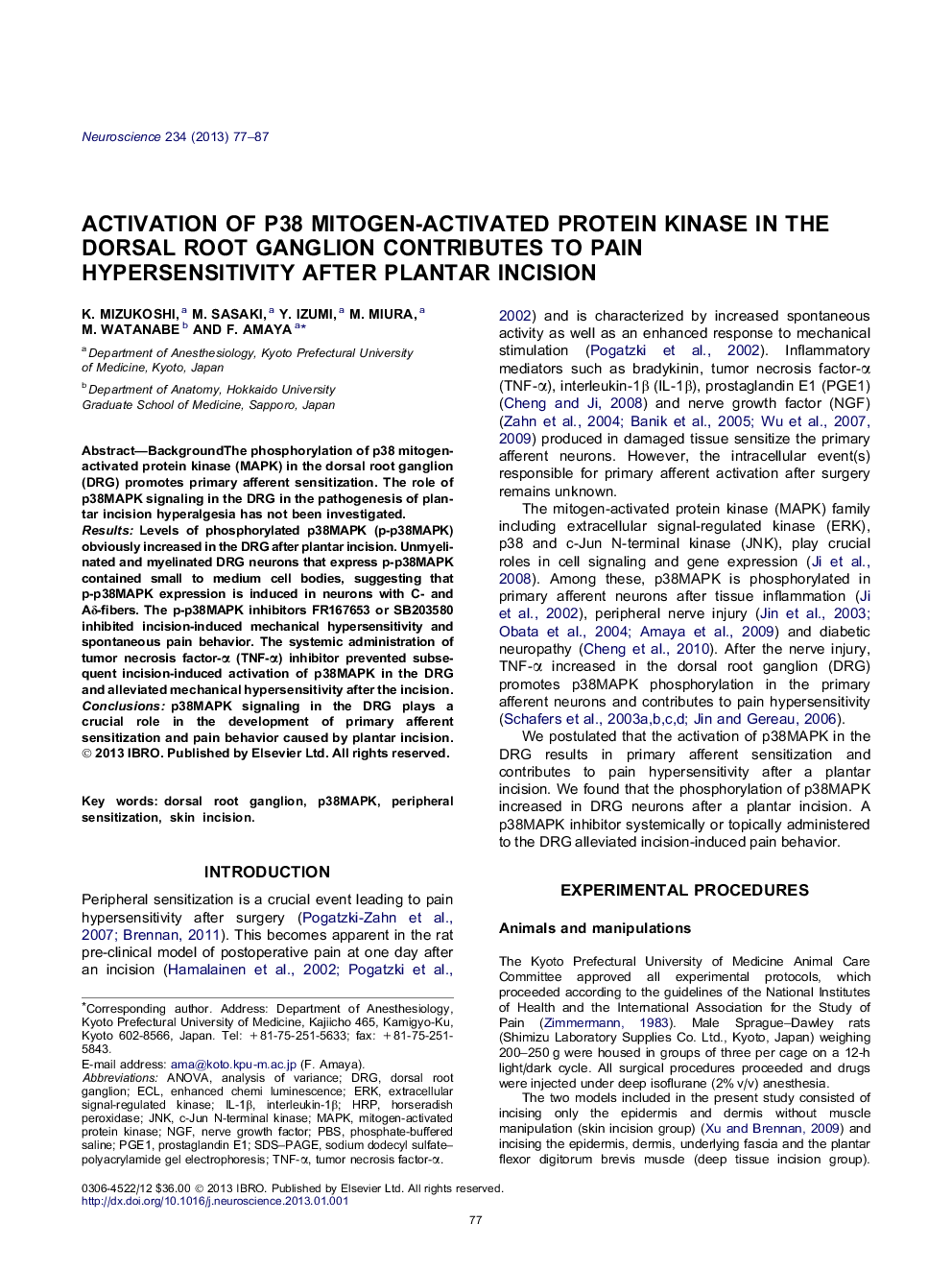| Article ID | Journal | Published Year | Pages | File Type |
|---|---|---|---|---|
| 6275014 | Neuroscience | 2013 | 11 Pages |
BackgroundThe phosphorylation of p38 mitogen-activated protein kinase (MAPK) in the dorsal root ganglion (DRG) promotes primary afferent sensitization. The role of p38MAPK signaling in the DRG in the pathogenesis of plantar incision hyperalgesia has not been investigated.ResultsLevels of phosphorylated p38MAPK (p-p38MAPK) obviously increased in the DRG after plantar incision. Unmyelinated and myelinated DRG neurons that express p-p38MAPK contained small to medium cell bodies, suggesting that p-p38MAPK expression is induced in neurons with C- and Aδ-fibers. The p-p38MAPK inhibitors FR167653 or SB203580 inhibited incision-induced mechanical hypersensitivity and spontaneous pain behavior. The systemic administration of tumor necrosis factor-α (TNF-α) inhibitor prevented subsequent incision-induced activation of p38MAPK in the DRG and alleviated mechanical hypersensitivity after the incision.Conclusionsp38MAPK signaling in the DRG plays a crucial role in the development of primary afferent sensitization and pain behavior caused by plantar incision.
⺠p38MAPK is activated in C- and Aδ-fiber neurons after the plantar incision. ⺠Inhibition of p38MAPK attenuates incision-induced pain hypersensitivity. ⺠TNF-α involves in the activation of p38MAPK in the DRG after the incision.
